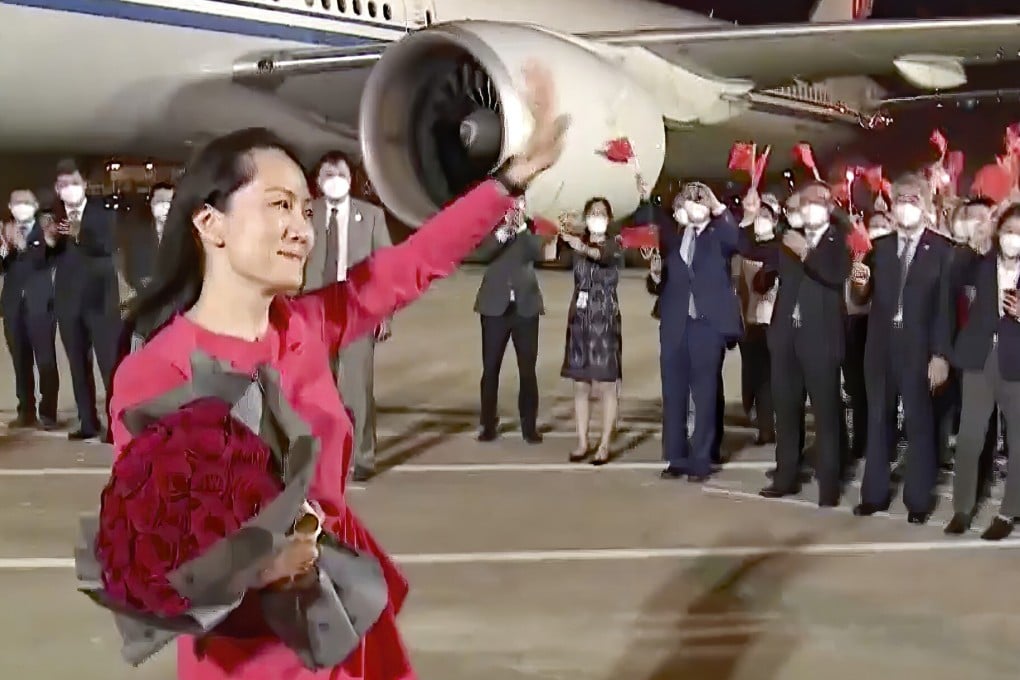Meng Wanzhou has weathered the storm and returned home but have the clouds lifted for Huawei?
- Huawei’s CFO returns to a Huawei transformed by US sanctions, as it moves deeper into software and cloud amid smartphone and overseas 5G pressures
- Meng’s release has lifted spirits at the company but analysts question whether it signals a real shift in Huawei’s fortunes amid US-China tech tensions

When Huawei Technologies Co chief financial officer Meng Wanzhou was released and returned home this month after a nearly three-year court battle in Canada, the mood among the tech giant’s rank and file workers – and the country – was ebullient.
But despite the personal relief for Meng’s family – her father is Huawei founder Ren Zhengfei – it cannot automatically be assumed that the smartphone and network gear maker has also been released. The Shenzhen-based company remains subject to harsh US trade sanctions that have crippled its business operations.
The odds of Washington allowing Huawei to import high-end chips again any time soon remains small, meaning that its foray into software and services, increased competition in smartphones and ultimately lower profit margins, are likely to remain the status quo for some time to come, according to analysts.
“Smartphones used to be the golden egg for Huawei, in terms of generating cash flows to support other business lines but that advantage is now gone,’ said Gary Ng, senior economist for Asia Pacific at investment bank Natixis. Huawei has no choice but to pin its hopes on software and cloud services, but that is “unlikely to fully compensate for losses at its handset business”.